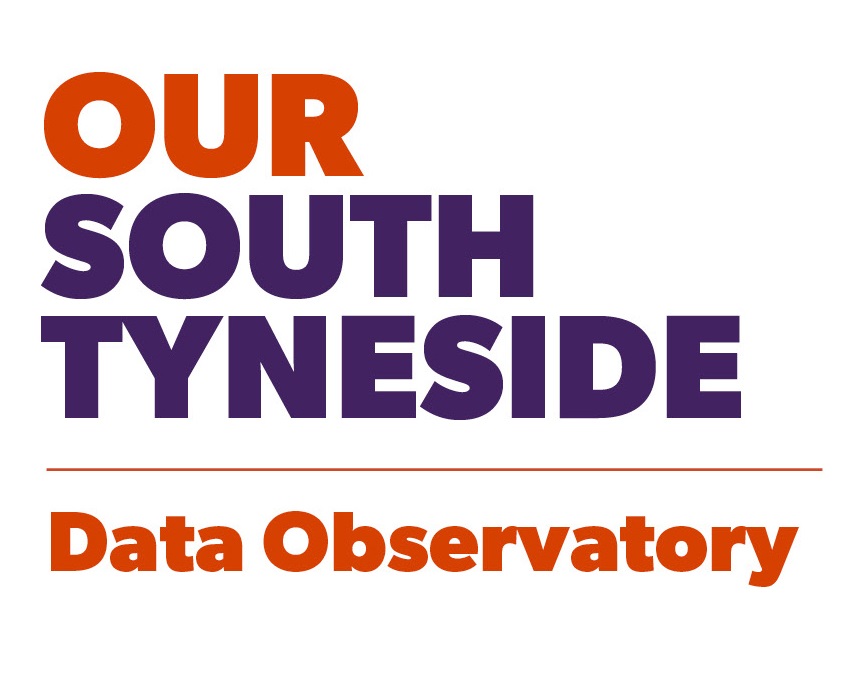Andy Wintrip, Data Observatory blog, Public Health, 20 December 2024
This blog goes alongside the Picture of Health slides. These are PowerPoint slides that have the same information and more. You can find them here: Picture of Health 2024.
The main data source for this project is the Office for Health Improvement and Disparities (OHID) Picture of Health tool. Using this tool, as well as other data to support my analysis, I present some of the key findings of this year’s Picture of Health report.
Overall, people in South Tyneside have poorer health and well-being compared to the rest of the country. One big reason for this is the high levels of poverty and deprivation. These problems affect both people and their communities, causing more people to be out of work, live in worse housing, and have fewer opportunities. This makes it harder for them to live healthy and fulfilling lives.
Population change
The Office for National Statistics (ONS) tells us that our population got bigger by 0.4% or 662 people between 2022 and 2023.
Looking at the South Tyneside population over the last ten years, we see that South Tyneside has an ageing population. From 2014 to 2023, there was 3,093 more people aged 65 and over. At the same time, the number of people aged 16-64 has gone down by 2,732.
Violence prevention and alcohol misuse
In South Tyneside, domestic abuse and hospital visits due to alcohol-related problems are significant issues.
In 2022/23, there were 1,260 people out of every 100,000 in South Tyneside who needed hospital care because of alcohol-related problems. This is more than double the national rate of 581 per 100,000.
Domestic abuse incidents in South Tyneside have gone up. In 2022/23, there were 38 incidents per 1,000 people. This was higher than the national rate of 30.6 per 1,000 people.
Tobacco control
For over ten years, there have been more smokers in South Tyneside on average than England. But between 2011 and 2023, the number of smokers in our area has been going down which is a positive change for the borough.
Compared to the national average, we have a much higher rate of mothers who were smokers at the time they give birth. In 2023/24, it was 12%, while the national rate was 7%.
In South Tyneside, more people quit smoking at four weeks after their quit date compared to the national average. In 2022/23, it was 2,588 per 100,000 people, while the national rate was 1,620 per 100,000.
Over the last ten years, more people are saying they have never smoked. In 2014, 46.5% of people said they never smoked, but by 2023, that number went up to 61.9%.
Mental health & wellbeing
In South Tyneside, there is a growing number of school kids that have emotional and mental health needs. It’s estimated in 2022/23 that 4.5% of school pupils here need this kind of help, while the national average is 3.3%.
In South Tyneside, more people go to the hospital for intentional self-harm compared to the national average. In the year 2022/23, it is 221 out of every 100,000 people are admitted to hospital for intentional self-harm, while the national average is 126 out of every 100,000 people.
Life expectancy
On December 4th, 2024, the ONS shared new information about how long people live. For 2023, they found that men and women aged sixty-five in South Tyneside are living longer. Men are living 0.2 years longer than in 2022, and women are living 0.4 years longer than in 2022.Looking at life expectancy for men at birth we see an increase of 0.1 years from last year, and for women at birth there has been no change at all.
Other resources
If you are interested in exploring the health and wellbeing further in South Tyneside here are some more resources:
Our data observatory offers a variety of themed reports including topics like Health & Social Care, Population, Deprivation and more.
Our council site holds our monthly intelligence updates which contain brand new data releases from a variety of sources.
OHID provide both the Picture of Health tool and Fingertips, both of these are tools updated regularly with many different indicators.
You can also contact the Public Health Knowledge and Intelligence team using:
public.health@southtyneside.gov.uk

